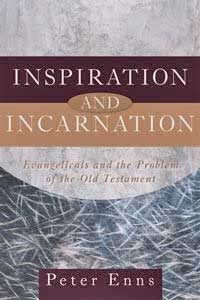
Dialogues need not start with “Godʼs existence,” because if you are dialoging with a member of a revealed religion with a particular Holy Book, itʼs really “their God” that they are discussing whenever they mention “God,” and “their holy revelation of that God” as revealed in their particular holy book. But how do we know such books are holy? And why only those books?
What questions do such books raise concerning their origin, editing, questionable teachings, errors, etc.? How do we know thereʼs only one way of interpreting them? Lastly, why doesnʼt God inspire all devout Christians, Muslims, Jews, who pray for holy guidance, to agree on which holy books are indeed holy and also come to the same conclusions regarding their teachings?The books Iʼve suggested ought to be read in order since the topics grow more complex and challenging. The first two are by Evangelical Christian biblical scholars who admit that non-Evangelical biblical scholarship has raised valid questions:
Inspiration And Incarnation by Peter Enns
Godʼs Word In Human Words by Kenton L. Sparks (goes into a bit more depth than Ennsʼ book)
- The Human Faces Of God: What Scripture Reveals When It Gets God Wrong (And Why Inerrancy Tries To Hide It) by Thom Stark Thom examines in detail some of the stickiest (and most emotionally jolting ways) in which biblical scholarship calls into question the notion of “biblical inerrancy.” I had the pleasure of reading the manuscript. For me it was like reading James Barrʼs classic work, FUNDAMENTALISM, but updated and with more rigorous questions. See Thomʼs book page in which he answers reviewerʼs questions. And see his new website, Religion at the Margins.
Beyond Born Again An early work by theologian Robert M. Price written not many years after he began recognizing that many of the arguments employed by his favorite Protestant apologists were far from being slam dunks but left much unproven or assumed. He discusses the “born again” experience as well as arguments employed by Evangelical Christian apologists from the last generation, i.e., prior to Lee Strobel. (Reading this work and Priceʼs newest one below, one can see that the apologists are still attempting to prove the same unprovable things).
Scripting Jesus: The Gospels In Rewrite by L. Michael White (Chair in Classics and Christian Origins and director of the Institute for the Study of Antiquity and Christian Origins at the University of Texas at Austin). Covers a host of essential topics. This work and the one directly below are more challenging than previous books on this list in terms of both their length and level of ideas. I would also suggest reading these books in the same order in which they are listed.
Constructing Jesus: Memory, Imagination, And History by Dale C. Jr. Allison (Prof. of New Testament Exegesis and Early Christianity at Pittsburgh Theological Seminary). A forthcoming work that looks to be his magnum opus. A highly revered scholar open to miracles as well as historical criticism. His previous fascinating works include: The Historical Christ and the Theological Jesus; and, Resurrecting Jesus: The Earliest Christian Tradition and Its Interpreters (Journal for the Study of the Pseudepigrapha Supplement).
The last two works are perhaps the most controversial. I would not suggest that a Christian begin by reading them:
The Christian Delusion, ed. by John Loftus [a collection of essays on basic psychological, historical and sociological questions related to Christianity; recent biblical studies are cited in the endnotes]. By the same author: Why I Am An Atheist, and, The End of Christianity [a forthcoming collection of essays by multiple authors].
The Case Against The Case For Christ by Robert M. Price Unless the previous books are read and understood, this one may not be fully appreciated. Price is not arguing his own theses in this work but sticks pretty much to advocating in favor of the host of questions raised by mainstream biblical scholarship versus Lee Strobelʼs Evangelical apologetic arguments. (See also Priceʼs annotated list of must read works on the historical study of the Bible.)
The eight works above should spark questions, even in the minds of Evangelical apologists. The point is not to supply all the answers since no one has them, as even Sparks and Enns, the two Evangelicals above, admit. The point is that questions remain, many unknowns. And belief in itself does not cross the bridge of questions, while reasoning might not even take a person halfway across that bridge, depending on just how many questions one notices and acknowledges. Neither do such questions have to do with whether or not “God” exists. These questions are matters of debate concerning “revealed religions” with their “holy books.”
Labels:Evangelicalism, inerrancy, Robert M. Price| Help Ed score 100% on YSlow. Server Fees & 🍪-free *CDN. This page was designed and tested by Night Owl using GTMetrix on 5/24/2017. | |||
| *Content Delivery Network | PageSpeed (100%) | YSlow (99%) | Onload Time 0.386s Fully Loaded Time 1.2s Pagespeed 100% YSlow 99% |